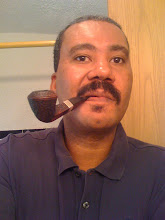At the time of this writing, our friends in Washington are arguing over a new health care plan that will either fix everything or ruin everything, according to which side you want to believe. My opinion is that things will remain basically the same whether the plan passes or not from the standpoint of the people receiving health care. Yes, more people will be included, and most of the people who were already included will pay a bit more, and some will pay a lot more. But the whole purpose of this is health, which includes life expectancy and quality of life. There's room for improvement with the former and we can do a lot better with the latter. I have my own plan to achieve this, and I can guarantee you that it won't cost a penny more than we already pay, and will most likely cost us a lot less.
Before I tell you about my plan, I would like to talk a bit about how we got into this mess. I mentioned in a prior post that health insurance actually makes health care more expensive in the long run because it hides the cost from the consumer. Nationalized health care is even worse because it hides the cost from everyone. I may have also mentioned that we give monopolies to corporations who develop new drugs, and put into a place a testing system that costs billions of dollars and still doesn't keep out all of the harmful drugs, but does give the pharmaceutical companies an excuse to earn windfall profits while their patents last. Also, we've replaced natural substances in our diet like animal fat and cane sugar with processed substances like corn syrup and canola oil, in the former case to lower costs, in the latter for health reasons. These things are all true, but none of them are the root cause of the problem.
Here's the root cause: our medical model implies that the human body is a machine. We've taken the position that only pharmaceutical drugs and medical procedures can fix our problems. Yes, diet and exercise are said to be helpful, but that only supports my point, which is this: all of these things reduce medical problems (and their prevention) to issues of chemistry and mechanics, and completely leave out (by design) the role of the mind and emotions. The worst part is that we all know about something that proves that our model is incomplete at best.
If you haven't guessed by now, I'm talking about the Placebo Effect. The effect is so well known that no study of new pharmaceutical drugs is considered to be valid unless it is double-blind. Not only is the patient not allowed to know if he's really getting the new wonder drug instead of a sugar pill, the person giving the pill isn't allowed to know either!
So my idea is this: instead of treating the placebo effect as something to be eliminated through controls, why not find out how it works and how to use it to our advantage? If sugar pills will work in some cases and we can find out why they work, then we have a solution that works for less money and with fewer side effects. I'm sure I'm not the first person to have this idea, but maybe if enough of us mention it they'll actually try it.
Subscribe to:
Post Comments (Atom)




No comments:
Post a Comment